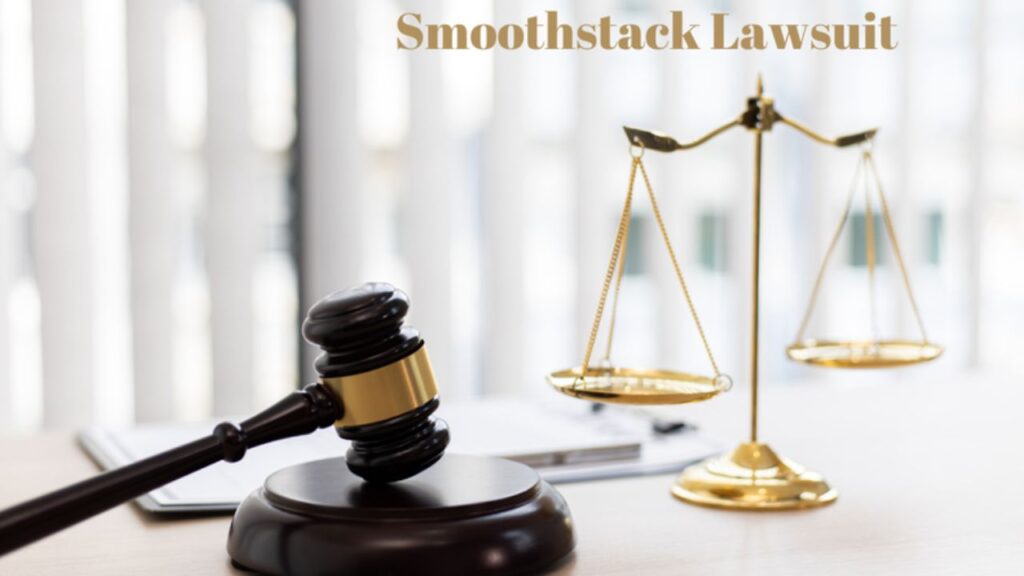The Smoothstack lawsuit has generated significant attention within the tech industry. Accusations have arisen against this IT consulting and staffing firm, raising numerous legal and ethical questions. Understanding the scope, causes, and implications of this lawsuit is essential for both tech professionals and companies involved in such arrangements. This article will dive deep into the details of the Smoothstack lawsuit, covering everything you need to know.
What is the Smoothstack Lawsuit?
Smoothstack, a tech consulting and staffing firm, has been accused of engaging in questionable employment practices. These accusations have led to legal action from former employees, alleging unfair labor conditions, breach of contract, and other violations. As a result, Smoothstack faces lawsuits that have brought significant scrutiny to its business model and employment policies.
The lawsuit’s primary focus revolves around employment contracts, non-compete clauses, and alleged misclassification of employees as independent contractors. These legal challenges highlight broader concerns about employment practices in the tech industry, where workers often sign contracts that limit their career mobility and impose harsh penalties for contract termination.
The Origins of the Smoothstack Lawsuit
The origins of the lawsuit can be traced to complaints by former employees. They allege that the company’s training and employment structure was designed to bind them to restrictive contracts. Employees have claimed that Smoothstack required them to sign contracts with prohibitive clauses, which included non-compete agreements and significant financial penalties if they chose to leave before their contract term expired.
Several former employees also argue that they were misclassified as independent contractors, which limited their legal protections and benefits. This misclassification is a critical aspect of the lawsuit, as it raises questions about whether Smoothstack’s practices comply with labor laws regarding employee classification and fair compensation.
Legal Claims Filed Against Smoothstack
The legal claims against Smoothstack are multifaceted, with several accusations coming to the forefront. These claims include:
- Misclassification of Employees: As mentioned, one of the main accusations against Smoothstack is the misclassification of employees as independent contractors. This practice can prevent workers from receiving benefits like health insurance, overtime pay, and unemployment insurance.
- Unfair Labor Practices: Former employees have accused Smoothstack of enforcing unreasonable working conditions, such as long hours and low pay, which were not commensurate with industry standards.
- Restrictive Employment Contracts: Smoothstack is also accused of using employment contracts that severely restricted employee freedom, particularly through non-compete clauses. These clauses prevented employees from seeking other job opportunities in the tech field, often for years after leaving the company.
- Wage Theft: Another significant claim is wage theft, where employees allege they were not fairly compensated for the hours worked. In some cases, it is claimed that Smoothstack delayed or withheld payments without proper justification.
Non-Compete Clauses and Their Legal Impact
A central issue in the lawsuit is Smoothstack’s use of non-compete clauses in its employment contracts. These clauses typically prevent employees from working for a competitor or starting their own tech consulting business within a certain period after leaving the company. While non-compete clauses are common in many industries, they have been heavily criticized for stifling employee mobility and limiting opportunities for workers.
In some jurisdictions, courts have ruled that non-compete clauses are unenforceable if they are deemed overly restrictive or against public policy. The outcome of the Smoothstack lawsuit may hinge on whether the court finds these clauses reasonable or excessively prohibitive.
Also Read: Arcane Sniper Chapter 126: Unveiling New Powers And Strategies
Employee Misclassification: A Common Problem in Tech
The alleged misclassification of employees as independent contractors is not unique to Smoothstack but is a widespread issue in the tech industry. Companies often classify workers as independent contractors to avoid providing benefits such as healthcare, overtime pay, and unemployment insurance. However, labor laws in many regions dictate strict guidelines for determining whether a worker is an employee or an independent contractor.
The lawsuit argues that Smoothstack misclassified its workers, thereby depriving them of crucial employee benefits. If the court rules in favor of the plaintiffs, it could have a ripple effect across the tech industry, prompting other companies to reconsider how they classify their workers.
Legal Framework Surrounding the Smoothstack Lawsuit
Understanding the legal framework that surrounds the Smoothstack lawsuit is crucial. This case touches upon several aspects of labor law, including:
- Fair Labor Standards Act (FLSA): This federal law sets the standards for minimum wage, overtime pay, and child labor. Misclassification of employees under this act can lead to significant penalties for companies that do not comply.
- Contract Law: Employment contracts are a key focus of this lawsuit. The enforceability of non-compete clauses, wage theft claims, and breach of contract allegations are all rooted in contract law.
- State Labor Laws: Each state has its own labor laws regarding minimum wage, overtime pay, and employee classification. The Smoothstack lawsuit may involve multiple jurisdictions, depending on where the plaintiffs worked, adding another layer of complexity to the case.
Implications for the Tech Industry
The Smoothstack lawsuit is not just a legal battle between a company and its former employees; it could have far-reaching implications for the entire tech industry. Companies that rely on similar employment models may face increased scrutiny from both regulators and employees. If Smoothstack is found liable for any of the claims, it could set a precedent that forces other companies to reevaluate their employment practices.
This case also highlights the growing trend of tech workers challenging the employment terms that have become standard in the industry. As more tech employees become aware of their rights, they may be more likely to take legal action against companies that engage in questionable practices.
Potential Outcomes of the Smoothstack Lawsuit
The outcome of the lawsuit remains uncertain, but several potential scenarios could unfold. The most likely outcomes include:
- Settlement: Many lawsuits are resolved through settlements, where the company agrees to compensate the plaintiffs without admitting liability. A settlement would allow Smoothstack to avoid a lengthy court battle and could provide immediate compensation to former employees.
- Court Ruling in Favor of Plaintiffs: If the court rules in favor of the plaintiffs, Smoothstack may be required to pay damages for wage theft, misclassification, and breach of contract. This ruling could also force the company to change its employment practices.
- Court Ruling in Favor of Smoothstack: If the court rules in favor of Smoothstack, the company would likely continue its current business practices. However, even a victory in court could damage Smoothstack’s reputation within the tech industry.
Examining Smoothstack’s Defense
Smoothstack has not publicly admitted any wrongdoing and is expected to mount a robust defense against the claims. The company’s defense may center around the legality of its contracts and employment practices. Potential arguments include:
- Voluntary Contracts: Smoothstack may argue that all employees voluntarily signed their contracts, fully aware of the terms and conditions, including non-compete clauses and the financial penalties for early termination.
- Industry Norms: The company could also argue that its employment practices are standard within the tech staffing industry, where non-compete agreements and contractor classifications are common.
- Compliance with Labor Laws: Smoothstack might assert that its classification of employees as independent contractors complies with both federal and state labor laws.
While these defenses may hold weight, much will depend on how the court interprets the legal arguments and the specific terms of the employment contracts.
Role of Arbitration in the Lawsuit
Another potential defense for Smoothstack could involve arbitration clauses. Many companies, including Smoothstack, include arbitration clauses in their employment contracts, requiring disputes to be resolved through private arbitration rather than in court. Arbitration often favors employers, as it is typically quicker and less expensive than court proceedings.
If Smoothstack successfully enforces arbitration clauses in its contracts, the plaintiffs may be forced to resolve their disputes outside of the court system. However, the enforceability of arbitration clauses is itself a contentious legal issue, and courts have struck down such clauses in certain circumstances.
Broader Impact on Employment Practices
Regardless of the lawsuit’s outcome, it is already prompting discussions about employment practices in the tech industry. Some companies may proactively change their policies to avoid legal challenges, while others may double down on their current practices, confident in their legal defenses. The case serves as a wake-up call for tech workers to scrutinize the contracts they sign and for companies to ensure their policies comply with labor laws.
What Tech Workers Should Learn from the Smoothstack Lawsuit
For tech professionals, the Smoothstack lawsuit offers several important lessons. First, it highlights the importance of thoroughly reviewing employment contracts, particularly non-compete clauses, and understanding the legal implications of signing such agreements. Workers should be aware of their rights regarding employee classification and should seek legal advice if they believe they have been misclassified.
Additionally, the lawsuit underscores the growing willingness of tech workers to challenge unfair labor practices. As the tech industry continues to evolve, workers will likely become more empowered to stand up for their rights, leading to further legal challenges against companies that engage in questionable employment practices.
Also Read: Gaming News eTruesport: What’s Trending In The World Of Games
Conclusion
The Smoothstack lawsuit is a pivotal case in the tech industry. Raising essential questions about employee rights, contract fairness, and labor law compliance. As the legal proceedings unfold, the outcome could have far-reaching implications. Not only for Smoothstack but also for other companies in the tech sector. Tech workers and employers alike should stay informed about the case and be prepared to adjust their practices in response to any legal developments.
FAQs
What are the main allegations in the Smoothstack lawsuit?
The main allegations include employee misclassification, unfair labor practices, wage theft, and restrictive employment contracts, particularly non-compete clauses.
Why is employee misclassification a key issue in the lawsuit?
Employee misclassification allows companies to avoid providing benefits. And protections typically afforded to employees, such as health insurance and overtime pay. The lawsuit alleges that Smoothstack misclassified workers to deny them these benefits.
How do non-compete clauses affect employees?
Non-compete clauses can restrict employees from working for competitors. Or starting their own businesses within a certain timeframe, limiting their career opportunities.
What could be the outcome of the Smoothstack lawsuit?
The possible outcomes include a settlement, a court ruling in favor of the plaintiffs. Or a court ruling in favor of Smoothstack. The case could also lead to changes in employment practices within the tech industry.
Is Smoothstack’s business model common in the tech industry?
Yes, many tech consulting firms use similar employment models, including non-compete clauses and contractor classifications. However, these practices are increasingly coming under legal scrutiny.
What should tech professionals take away from this lawsuit?
Tech professionals should carefully review their employment contracts, understand their rights regarding classification. And be prepared to challenge unfair practices if necessary.



